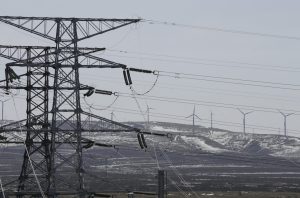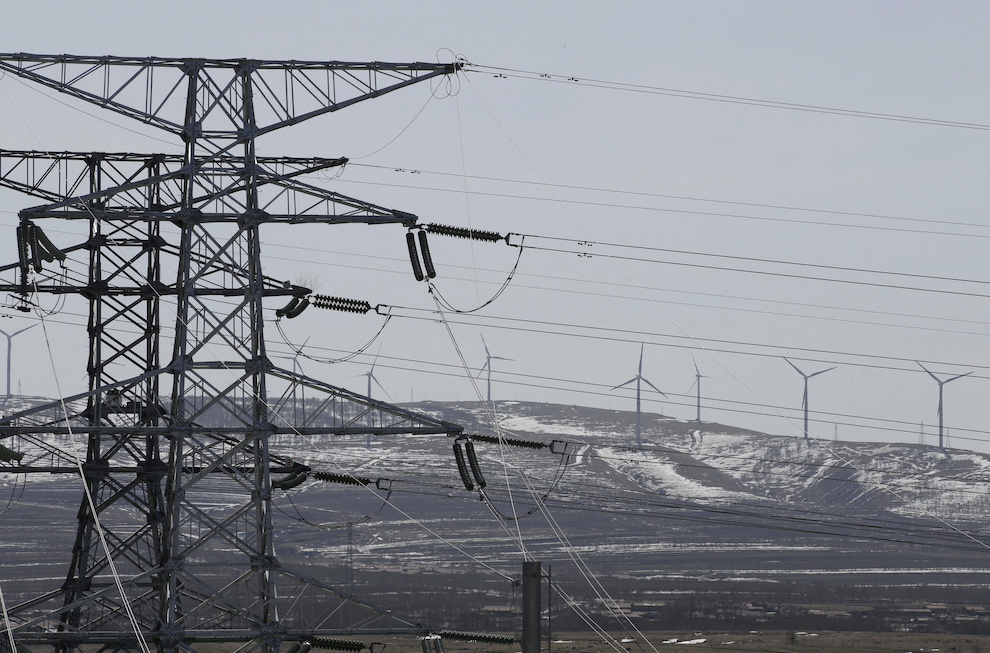Dutch Defence Minister Ruben Brekelmans warned on Saturday that China was “intensifying” efforts to gain access to the country’s chip technology, adding that Beijing was the Netherlands’ “biggest cyber threat.”
“The semiconductor industry, which we are technologically leading, or technology advanced, of course, to get that intellectual property – that’s interesting to China,” Brekelmans told Reuters on the sidelines of the Shangri-La Dialogue security meeting in Singapore.
The Dutch intelligence officials said in an annual report in April last year that Chinese spies were targeting the Dutch semiconductor, aerospace and maritime industries to try to strengthen Chinese military.
Also on AF: China Denies Trump Claim, Says It Was US That Broke Trade Deal
When asked if the spying had stopped, Brekelmans said: “It’s continuing. In our newest intelligence reports, our intelligence agency said that the biggest cyber threat is coming from China, and that we do see most cyber activity when it comes to us being as from China. That was the case last year, but that’s still the case. So we only see this intensifying.”
Brekelmans also said that security was becoming increasingly important for the Netherlands as China was “using” its “economic position for geopolitical purposes and also to pressure us”.
The minister said the Netherlands had introduced instruments to protect key industries and vital interests but the country and region also need to reduce their dependency on China for critical raw materials.
“Both on the European Union level, but also on the national level, we need to make bigger steps in order to reduce those dependencies,” he said.
Brekelmans’ warnings came on the heels of similar concerns raised by Swedish Deputy Prime Minister Ebba Busch at the EU Competitiveness Council in May. “The dependency on Russian gas will seem like a warm, sunny day compared to the dependencies on the raw material sector,” Busch had said according to a report by Politico magazine.
European officials have, for long, expressed concern over their raw material dependence on China.
But those worries have been particularly high since Beijing began a clampdown on its exports of rare earths in April. The chief of the European Union Chamber of Commerce in China warned last week that “many European production lines will come to a halt very soon due to the shortage of crucial inputs.”
China seethes
Meanwhile, on Sunday, Beijing mouthpiece Global Times rejected Brekelmans’ statements saying they were “politically motivated and lacking factual support.”
The state-backed newspaper cited domestic experts to say that China’s progress in the semiconductor industry came from “internal momentum” driven by a “comprehensive industrial chain, deep talent pool, and strong domestic demand.”
The newspaper also claimed that these breakthroughs were sparked by “necessity” and concerns such as those raised by Brekelmans were a result of the West’s growing “anxiety” over China’s “technological rise.”
It also accused Brekelmans of ‘mirroring’ the US and “exploiting security concerns” to “suppress China’s high-tech sector”.
ASML the key target
Brekelmans’ warning comes amid an intense technology war between China and the West — one that has intensified over the past three years amid efforts by the United States to cut Beijing off from cutting-edge semiconductor technology.
Key measures taken by the US — which have been implemented by its European allies such as the Netherlands — include stopping the export of advanced artificial intelligence chips to China, while also cutting off Beijing from high-tech chipmaking machines needed to make those chips.
The Netherlands’ ASML, which is also Europe’s most valuable company, is currently the dominant supplier of chipmaking machines, also known as lithography machines. Dutch officials have previously said that ASML has been a prime target of Chinese espionage attempts.
Dutch intelligence agencies first publicly attributed cyber espionage to China last year, when they said state-backed cyber spies had gained access to a Dutch military network in 2023.
Just months before that Dutch newspaper NRC also published multiple reports on the leak of key chip technology secrets from the country’s biggest semiconductor industry firms — ASML and chipmaker NXP.
The newspaper reported that China-linked hackers had gained undetected access to NXP’s computer network and stolen intellectual property, specifically targeting chip designs.
In a separate report, it also said that a China-based employee who worked at ASML stole the company’s technology secrets and then went on to work at Chinese tech giant Huawei.
ASML had previously acknowledged the chip tech theft in its annual report. Huawei has since gone on to become China’s leading chip designer and is currently leading the country’s efforts to make advanced AI chips at home.
- Reuters, with additional editing and inputs from Vishakha Saxena
Also read:
Chinese Spies Targeting Dutch Tech: Intelligence Agency
China Threatens Legal Action Against Anyone Who Shuns Its Chips>
Nvidia CEO Says US Export Curbs on AI Chips is ‘Flawed’ Policy
Satellite Images Show Huawei’s Expanding Chip Facilities – FT
China’s Huawei ‘Hoping Its New AI Chip Can Outpower Nvidia’
China’s Huawei, SMIC ‘to Ramp Up Production’ of Newest AI Chip
Huawei, SMIC Set to Defy US Sanctions With 5nm Chips: FT
China to Be Top Buyer of Chip Tools Despite Steep Cut in Spending
China’s Chipmaking Skills 10-15 Years Behind West: ASML CEO
China Threatens to Cut Off ASML Over New US Chip Curbs
US Push to Curb China Chip Tech Economically Motivated: ASML CEO
Access to China ‘Essential’ as it Develops Chips: ASML CEO























